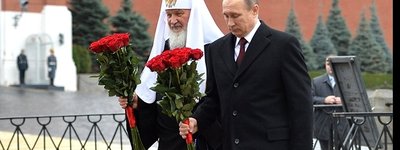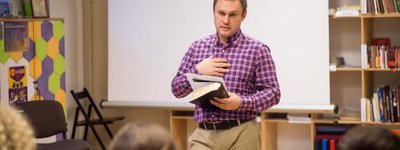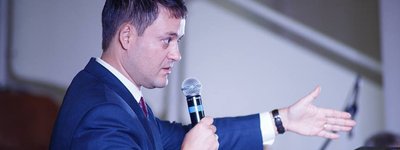Implications of the new pontificate
With the election of Pope Francis on March 13, Ukrainians naturally started looking for a “Ukrainian angle”. As it turns out, the Pope knows the Ukrainian Greek-Catholic Church well, having assistedthe Ukrainian Salesian Fr. Stepan Chmil’ (1914-79) during his school years and being a friend of Major Archbishop Sviatoslav in the years before his election as head of the Ukrainian Greek-Catholic Church.This holds promise that in ecumenical discussions with the Moscow Patriarchate, the UGCC will not be shunted aside. And it gives hope that its patriarchate may be recognized during this pontificate.
But public attention has been focused on other issues, which seem to have little to do with Ukraine: “Vatileaks,” clerical pedophilia, and other sex and money scandals. These appear, perhaps mistakenly, to be typically Western,and Latin, problems, of little interest to the Eastern Churches. Indeed, they probablydo not top the list for the two-thirds of Catholics who live outside the West. Other less sensational problems discussed by the press and observers include reform of the Curia, begun by Pope Benedict XVI, and the Vatican’s rocky relations with the press.The bishops themselves have called for more transparency, accountability, and efficiency in church administration. These issues do concern the Eastern Churches, though not more so than the Latin majority.
Yet there are other issues that the Church faces which, while general, have specific implications for the Ukrainian Greek-Catholic Church. Here are several:
First, the confusion and controversy that have plagued the Church since Vatican II point to the need for a clarification of doctrine. The Church needs to show that its teachings on such questions as contraception, abortion, and marriage form a seamless web that cannot be rent into different positions on different questions.The same respect for the natural order that questions the use of pesticides on crops, growth hormones on farm animals, and steroids on humans, forbids the use of artificial contraceptives to disrupt the essential process of human reproduction. The same belief in the sanctity of human life that restricts or prohibits war, euthanasia and the death penalty commands protection of the unborn. The same recognition of natural law that requires protection of the family demands opposition tosame-sex marriage. Pope Francis is known as a clear-headed thinker who, in the footsteps of Pope Benedict XVI, can be expected to further elucidate Catholic teaching on such issues. Some may call this “conservatism,” but it is simply Catholic doctrine.Given that everyday Ukrainian practice on nearly all these matters runs afoul of Church teaching, there is a great deal of work to be done.
The same is true of the Catholic response to “post-modernism,” a bundle of philosophies that Pope Benedict XVI addressed in his writings. A member of the intellectually accomplished Society of Jesus, who studied in Germany and is considered an intellectual successor of Benedict,Pope Francis can be expected to further develop the Church’s response.Lay Ukrainian Greek-Catholic intellectualscan play a major role in advancing a Catholic critique of post-modernism before the largely secular Ukrainian intelligentsia of Kyiv, which has evidently come under the spell of post-modernist ideology.
Such an effort would be part of Ukraine’s contribution to the New Evangelization. On a different level, young lay Catholics will need to challenge the notion, current among youth in Western and Western-influenced countries, that finding one’s identity is a matterof creating the self – or rather, of having it created by the manufactured “youth culture.” Their challenge is to propose a different model of self-discovery: the discovery of the self as created by God. But as Pope Francis has already shown, the best way to teach such principles is by example. His personal simplicity, humility, and openness to others -- which recall the late Ukrainian Catholic Major Archbishop Myroslav Ivan Cardinal Lubachivsky – are already well known.
Throughout his career, and from the very beginning of his pontificate, Pope Francis has expressed solidarity for the poor. He has advocated “a poor church, and a church of the poor.”We can expect that, like his predecessors, he will stress the Catholic Church’s social-economic teaching, which has been developing since the promulgation of Pope Leo XIII’s encyclical Rerum Novarum (1891). The Church leadership will likely turn more attention to the South and East: after all, two-thirds of the world’s Catholics live in Asia, Africa, and South America. The latter continent alone contains 39%, whileEurope’s share of Catholics has shrunk to 24%.
Pope Francis is familiar with the often unjust effects of globalization on the peoples of the “Third World.”These effects are not only material, but also spiritual, for globalization also brings a change in values. For example, the president of a consultancy firm near New Delhi was recently quoted as saying, “Historically, India was not about materialism or consumerism. It will take years before we can change that culture.” (Epoch Times (Washington, DC), March 21-27, 2013, p. 1.) The multinational corporations are not, of course,targeting the Catholic Church. They are targeting all the great religions, which teach simplicity and spirituality. In the past, the Pope has also criticized international economic structures, like the International Monetary Fund. What role will Ukraine play in international economics? Will it participate in structures and policies that exploit the poor, or will it support economic justice for all?
As Archbishop of Buenos Aires, Jorge Mario Bergolio knew how to “speak truth to power.” When the Argentine government published false statistics about the supposed success of its anti-poverty campaign, he exposed its inaccuracies.His relationship with the late President Nestor Carlos Kirchner and his wife and successorCristina Fernández Kirchner has not been smooth. This independent and critical stance towards the government sets a standard that Ukraine’s church leaders may not always find easy to meet.
For the first time in history, the Ecumenical Patriarch, Bartholomew, attended the papal inauguration. Pope Francis greeted him as “my brother Andrew,” referring to the fact that the Apostle Andrew was brother to his own predecessor as head of the Church, St. Peter. According to legend, St. Andrew also visited the future site of Kyiv. This suggests that the new pontiff will not neglect ecumenical relations with the Orthodox – all the while remembering the Ukrainians, Orthodox as well as Catholic, and their place in what may be a new Vatican ecclesiology.
The new Pope’s choice of the name Francis has an additional implication. Saint Francis of Assisi (1186-1226) was not only an advocate of the poor, but also a poet, praising God’s creation in the “Cantico delle creature” (“Canticle of All Created Things”). At his inauguration on March 19, the Pope spoke of the need to protect Nature. Like his Orthodox counterpart Bartholomew, Francis may prove to be an advocate of environmental protection: the conscientious stewardship of God’s creation. For Ukraine, devastated by decades of environmental degradation, this, too, may be an important aspect of the new pontificate.










